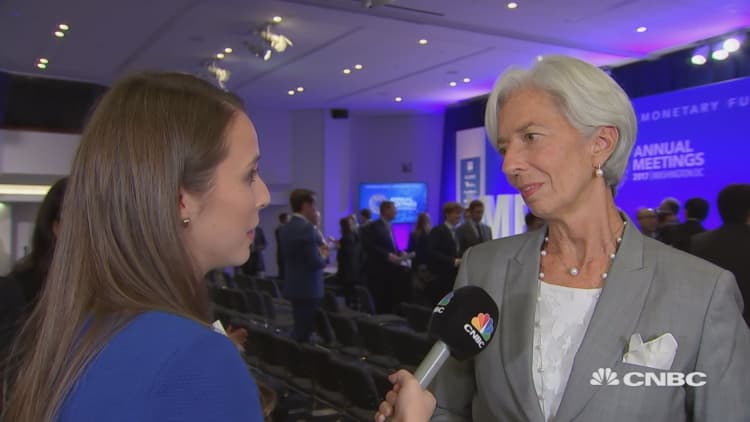The financial technology sector will continue to thrive in London, even as uncertainty coupled with Brexit continues to weigh on the economy, according to a study.
Early Metrics, a global rating agency for start-ups and small to medium-sized enterprises (SMEs), found that the British capital still outranked that of its European peers.
Based on analysis of 1,500 fintech firms across the continent, the study found that London's leadership in the fintech arena had felt a clear challenge from the U.K.'s vote to leave the European Union. But Early Metrics said that, despite this, London was "likely to remain Europe's fintech hub in the medium term."
"The U.K. is currently facing its most serious challenge so far as the fintech hub of Europe," Antoine Baschiera, CEO of Early Metrics, said in a statement Monday.
"Although it's too early to draw any definitive conclusions on what impact Brexit will have, companies are already assessing the implications of fundraising, talent acquisition and talent retention. Many fintech businesses rely on fast developing technologies in order to maintain a competitor advantage. This requires a company to be able to move quickly and have access to the right talent across borders."
London was host to 17 of the top 50 international fintech firms, according to a study by KPMG and H2 Ventures last year. The first half of 2017 saw $564 million of funding invested in British fintech start-ups, according to industry body Innovate Finance.

"London will maintain its fintech influence if this landscape does not change," Baschiera added.
"Positioned as the gateway between the U.S. and Europe, the U.K. already possesses expertize in successful fintech ventures and the capability to continue this trend, demonstrated by the $564 million invested in fintech start-ups this year alone."
Looking ahead
The study highlighted that regulatory issues and the U.K.'s membership of the single market would continue to be a concern as Britain quits the trade bloc.
Britain's status as a member of the single market is something that has frequently been called into question by both U.K. and EU negotiators.
Investors and start-ups in wealth management are also worried by the loss of EU passporting rights, Early Metrics said. Passporting rights allow British firms to access European customers and financial markets.
According to Early Metrics, 75 percent of fintech start-ups are reliant on external technology to integrate payment solutions and access market information.
Industry urged to push for 'sector deal'
Last week, a report by the City of London and KPMG said fintech is in need of its own "sector deal" that would ensure the U.K. has a single policy position backing the sector.

It also called on the British government to review how it continues to attract external talent to the country post-Brexit.
"Fintech is a real asset for the U.K.'s economy and we are a global leader in our own right," Catherine McGuinness, policy chairman at the City of London Corporation, said in a statement Friday.
The City, a local government body that spans the city's "Square Mile" financial district, said it hopes to see more support for the sector in the form of policy, regulation, funding and talent.
"Many countries are now taking steps to attract and retain fintech companies," Paul Merrey, strategy partner at KPMG, said in a statement Friday. "A sector deal would be a major boost to the U.K.'s ability to maintain its status as a global fintech leader."
According to the study, the fintech industry contributed £6.6 billion ($8.8 billion) to the U.K. economy in 2016 and employs over 60,000 people.





